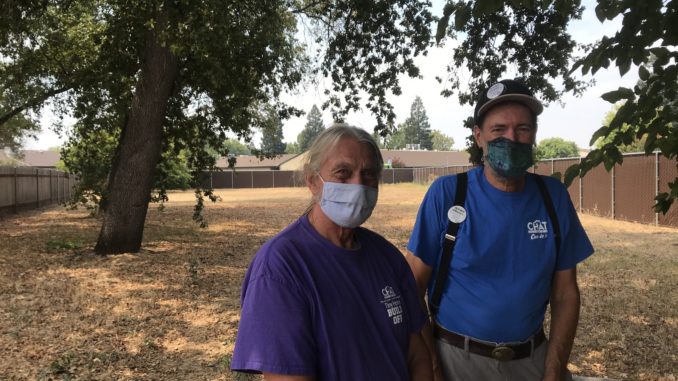
In May 2014, local social-justice champion Dan Everhart wrote an impassioned guest comment for the Chico News & Review decrying efforts to criminalize homelessness. In it, he criticized city policymakers for adopting an ordinance prohibiting sitting and lying on sidewalks, and business owners who hired armed guards to push homeless people out of downtown.
Everhart instead promoted the building of tiny-home villages—which could provide shelter, better enable delivery of social services and defray policing and other costs to the general public—as a more humane and financially beneficial solution.
“Large percentages of homeless people are veterans, have been in foster care, or have behavioral health issues that sometimes include extremely challenging psychiatric disorders.” Everhart wrote. “It’s a sobering realization that we’re spending extra money to make life harder for such vulnerable populations. Let’s do the right thing by embracing compassion and at the same time save some money.”
Sadly, Everhart—who was confined to a wheelchair following an accident decades earlier—died in December 2018, but his dream of a tiny house village is en route to becoming a reality. The Chico Housing Action Team (CHAT)—of which Everhart was a founding member—is collaborating with the Butte County Department of Employment and Social Services and the Department of Behavioral Health to construct such a facility in Chico. The project is, fittingly, named Everhart Village, in honor of his memory and his dogged advocacy for social justice, particularly the fight against homelessness.
A blank slate
The future site of the tiny home community is, at present, a fenced-in, dirt-and-grass lot off Rio Lindo Avenue adjacent to Behavioral Health services. Three CHAT members—Executive Director Leslie Johnson and board members Robert Trausch and Charles Withuhn—shared their vision of what the completed project will look like during a recent visit to the location.
“Just look at these oak trees!” Withuhn said as he walked through the gate, indicating a handful of shady giants near the front of the property.
The trio explained how a 25-foot wide, T-shaped road will run into the lot, ending at a modular building that will include meeting spaces, laundry facilities, a full kitchen, large refrigerators and other shared resources. There will be 15 to 20 tiny homes—suitable for singles or couples—scattered around the main building.
Withuhn said that, despite the sterile “emergency housing units” tag, the dwellings CHAT has planned will be “the prettiest little tiny homes you’ve ever seen,” complete with porches, running water, cooling and heating, and each equipped with furniture, a microwave and miniature refrigerator.
The Butte County Board of Supervisors gave CHAT preliminary approval for the project last month, and will vote on the final project and finer details this month, according to Johnson. The CHAT members said they are hoping for a four- to five-year site license with an option to renew. With that final approval pending, plus the need to obtain permits and the construction that needs to be done, Withuhn said he believes Everhart Village could be operational by spring 2021.
All of the village’s residents will be Behavioral Health clients referred by that agency. The county also will provide infrastructure for the property, while CHAT’s job will be to provide the buildings and “to keep the place running and safe for the residents,” Trausch said. “It’s a great marriage between us and the county.
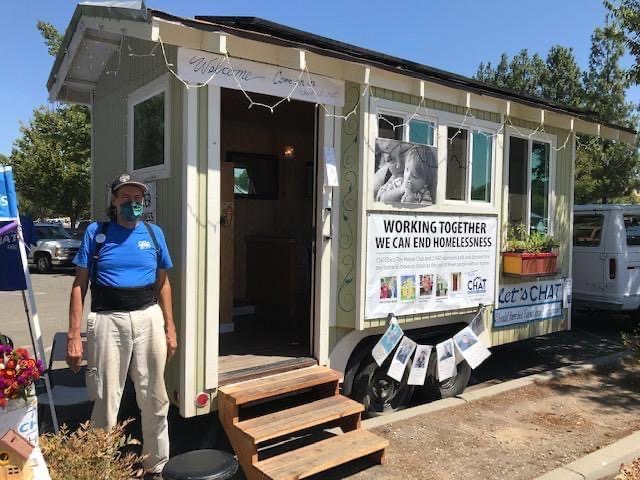
“We know from talking to the police that the people on the streets that have the most difficulty are those with mental illness,” he continued. “They need medicine and sometimes their medicine gets stolen, they can be victims of violence, all those things.
“Our hope is they will be able to go on from here to transitional and then permanent housing. While they’re in transition here, they’ll be getting the education and treatment they need [from Behavioral Health].”
Learning curve
Since it’s formation in 2013, CHAT has been successful in providing housing for homeless folks, with much of its work done under the radar. The organization currently manages roughly 60 rental properties throughout Chico that provide homes for about 160 people as part of its Housing Now program, according to Trausch. Everhart Village is not the first foray into housing people with mental illness, as CHAT currently manages a duplex dedicated to that purpose.
CHAT’s other initiatives include the Camp Fire Housing Access Model Program (CHAMP), which began in February and already houses 30 Camp Fire survivors; Redwood Housing, a collaborative effort with Chico State to house low-income and homeless students; and Hand Up Supportive Housing (HUSH), which offers discounted rent and supportive services for families.
CHAT recently informed the city of Chico that the organization would be interested in the land formerly occupied by Silver Dollar BMX (which is in the process of building a new facility near the Chico Municipal Airport) for a future project and helped organize a coalition of groups and individuals interested in helping the city establish a sanctioned campground for the homeless, but Johnson said there hasn’t been further movement with the effort.
CHAT’s operating model includes site managers at each location, regular check-ins, and help with life skills and connecting to social services.
“We’ve come to understand that it takes most people six months to a year to overcome the mental and emotional damage done by living unhoused,” Trausch said. “So we give people the time they need and we work with them. We don’t just put people in houses and let them fail, we show them that we’ll be there to make sure they succeed.”
CHAT’s track record has led the organization to receive support from all corners of a community deeply divided by issues surrounding homelessness, Trausch added. That wasn’t the case, however, with Simplicity Village, a tiny-house community CHAT was well on the way to establishing in South Chico before it was waylaid by a lawsuit filed by the owner of neighboring Payless Building Supply, Frank Solinsky. Simplicity Village would have provided housing for up to four dozen homeless seniors.
“We learned a lot of lessons from that,” Trausch said. “We were a naive organization in some respects; it was a new project for us and we were excited. We still think it would have been great and [gotten] people off the street, but other people had different perspectives on what was allowed or not allowed on that property.”
“In the end,” Withuhn added, “it was a matter of spending the money people had donated to us to house people or to fight in court. When people give you money to house people, there’s something sacred about that.”
As for Everhart Village’s moniker, none of the CHAT members could remember whose idea it originally was, but all agreed it was perfect for the project.
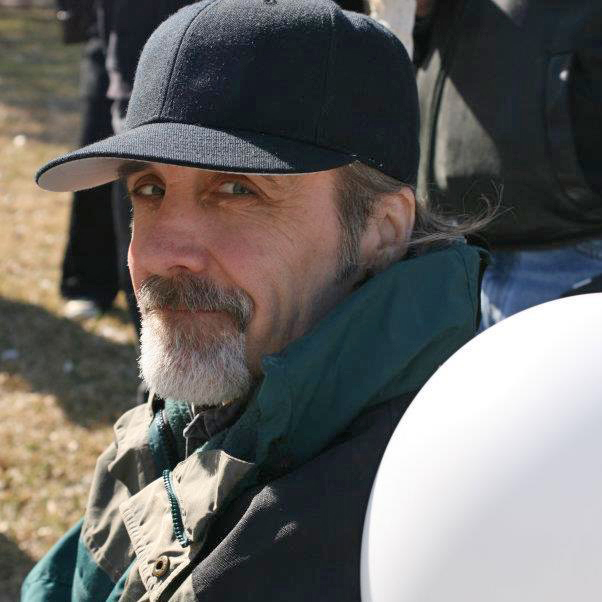
“Dan had such a heart for helping people who were homeless; it was so important to him.” Johnson said. “He was the one who brought [the founding members of CHAT] all together to start talking about homelessness. He was there when we started the first Safe Space [shelter] during a cold snap [in winter 2013], when it was just a warming center at Chico Peace and Justice Center and before it became its own organization. He was the one who got us talking to people about tiny houses.
“Basically, he really was the spark plug for CHAT,” she said, “and we all agreed we wanted to honor him this way.”

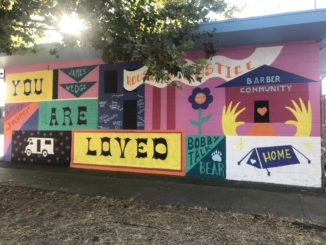
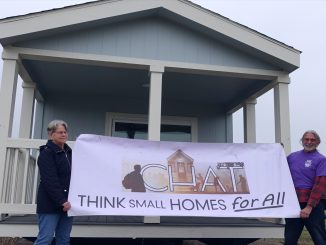
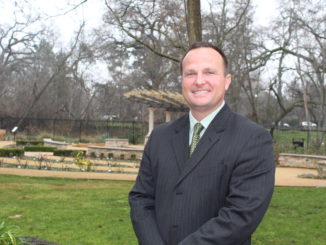
Be the first to comment